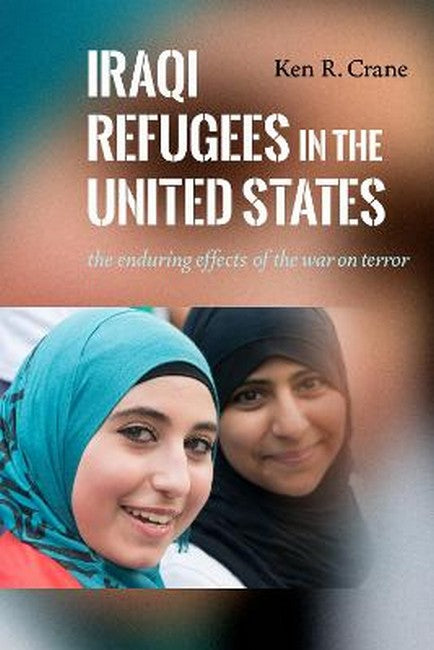Ken R. Crane is a scholar-practitioner who has worked with Vietnamese, Iraqi, and Afghan refugees in California, and in development and relief programs in Jamaica, Haiti, Sudan and Kenya. While at the Julian Samora Research Institute he studied the migration patterns from Mexico to the Midwest and the religious involvement of US-born Latinx youth. Since 2008 Crane has been teaching sociology, anthropology, and global studies at La Sierra University, in Riverside, California. He is author of Latino Churches: Family, Faith, and Ethnicity in the Second Generation, and a contributing author to Apple Pie and Enchiladas: Latino Newcomers in the Rural Midwest (eds. Jorge Chapa & Ann V. Millard).
Request Academic Copy
Please copy the ISBN for submitting review copy form
Description
Compassionately and carefully tells the story of Iraqis displaced from their home country and forced to resettle in the U.S. owing to George W. Bush's unbecoming 'war on terror.' Crane poignantly and meticulously builds an understanding of what belongingness meant for the displaced and resettled Iraqis in a country whose political decisions and actions had upended their lives. The book amplifies the voices of a diverse group of Iraqis as they combatted the worst economic recession, the rising Islamophobia and the constant reminder of the violence they fled. A compelling portrait of resilience, belonging, and an intense desire for a peaceful future for their families and community. -- Pallavi Banerjee, Associate Professor of Sociology, University of Calgary With the 'War on Terror' and ongoing panic about migration and Islam, the few Iraqi refugees the US has admitted have faced particular challenges. Ken R. Crane shows how some of them have met these challenges with an account of how struggles to belong-that began with sanction-induced stresses and the US invasion-continued as refugees settled in the US. His up-close analysis of Iraqis living in the far-flung suburbs and exurbs at the edge of Los Angeles, known as the Inland Empire, shows how they "obliquely" resist assumptions about success and the good life implicit in state efforts to mold ideal immigrants, make concerted efforts to maintain connections among themselves, and find common ground with their Latinx neighbors. Based on nearly a decade of research that altered Crane's own previous assumptions as a humanitarian worker, the book critically connects US foreign and domestic policies by letting the reader follow the evolution of families of different backgrounds and faith communities as they face Islamophobia, racialization, and find their way into new American lives at bake sales, soccer practices and neighborhood tiendas. -- Susan Ossman, author of Shifting Worlds, Shaping Fieldwork: A Memoir of Anthropology and Art

